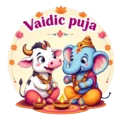
Description
In Hindu tradition, every offering made to a deity has deep spiritual symbolism. Among all offerings to Lord Shiva, one stands out for its profound simplicity and immense power — the Bilva Patra, or Bael Leaves.
Offering Bilva Leaves to the Shivling is considered one of the most sacred acts of devotion. It is believed to cleanse sins, calm the mind, and draw the grace of Mahadev, the compassionate destroyer and supreme protector of the universe.
What are Bilva Leaves?
Bilva Patra (Aegle marmelos) comes from the sacred Bael tree, which holds divine importance in Hindu scriptures. The leaves generally appear in triplets, symbolizing:
-
Trinetra – the three eyes of Lord Shiva
-
Trimurti – Brahma, Vishnu, Mahesh
-
Three Gunas – Sattva, Rajas, and Tamas
This trifold structure makes Bilva Leaves the most beloved offering to Lord Shiva.
Scriptural Significance of Bilva Leaves
The importance of Bilva Patra is highlighted in several Hindu texts including the Shiva Purana, Skanda Purana, and Padma Purana.
"Bilvapatram Visheshena Shiva Pooja Vidhaayakam"
(Bilva leaves are especially sanctified for Shiva worship.)
"Tripatra Bilvam Tulyaani Trishu Lokeshu Durlabham"
(A triplet Bilva leaf is rare even in the three worlds.)
Offering just one clean, unbroken Bilva leaf is said to be equal to performing 100 yagnas.
Why Offer Bilva Leaves to Lord Shiva?
1. To Purify the Mind and Body
Bilva leaves help cleanse your aura and thoughts, making you spiritually receptive.
2. To Seek Forgiveness and Remove Sins
Even serious karmic doshas are believed to be washed away through sincere Bilva Patra offerings.
3. To Calm Lord Rudra's Fierce Energy
Bilva leaves cool and soothe the fierce form of Shiva, invoking his compassion.
4. To Fulfill Desires
Devotees seeking peace, marriage, children, or prosperity offer Bilva with pure intentions.
5. To Cure Health Issues
Bilva is medicinal and spiritually healing. It’s often offered in prayers for well-being.
How to Offer Bilva Leaves – Step-by-Step Puja
Items Needed:
-
Fresh, unbroken Bilva leaves (ideally with 3 leaflets)
-
Shivling or Shiva idol
-
Water (or Ganga Jal)
-
Optional: Milk, sandalwood paste, incense, white flowers
Puja Procedure:
-
Wash the Bilva Leaves gently with clean water.
-
Offer Jal Abhishek to the Shivling while chanting “Om Namah Shivaya”.
-
Place the Bilva Patra with the smooth side facing up and stem pointing away from you.
-
Chant:
“Om Bilvapatraya Namah” -
Offer flowers, light a diya or incense, and sit in meditation or prayer.
-
If performing a Sankalp Puja, state your wish or intention before the offering.
Best Days to Offer Bilva Leaves
| Day/Event | Significance |
|---|---|
| Shravan Somvar | Most sacred time for Shiva worship |
| Mahashivratri | Cosmic night of spiritual awakening |
| Pradosh Vrat | Bi-monthly vrat to remove sins |
| Mondays | Lord Shiva's day — ideal for Bilva offerings |
| Amavasya | For Pitru Shanti and karma cleansing |
Spiritual Benefits of Offering Bilva Leaves
| Benefit | Description |
|---|---|
| Mental Peace | Reduces stress, anger, and restlessness |
| Forgiveness | Removes past life sins and karmic blocks |
| Blessings from Mahadev | Attracts Shiva’s grace and protection |
| Marital Harmony | Balances relationships and emotional wounds |
| Prosperity | Opens pathways to success and abundance |
Where to Offer Bilva Patra
-
Shiva temples like Omkareshwar, Kashi Vishwanath, Kedarnath, Trimbakeshwar
-
Home altars – you can offer Bilva to a Shivling at home with the same devotion
-
During Shravan Maas, devotees collect Bilva leaves themselves and walk barefoot in Kanwar Yatra to offer them with sacred Ganga Jal
A Devotee’s Thought
“I had no wealth, no peace, no path — but every Monday I offered Bilva leaves to Bholenath. Today, I have everything — because Mahadev gave me more than I asked for.”


